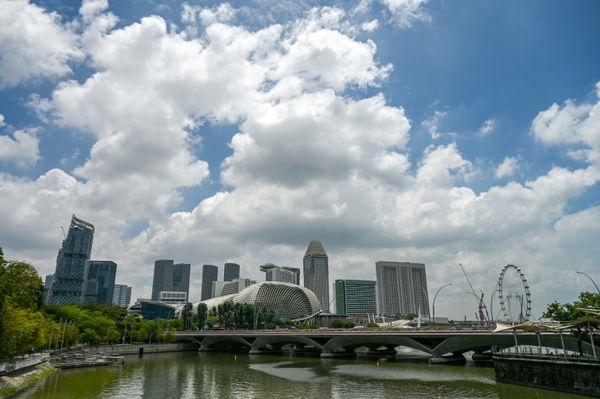
Climate campaigners have asked the Australian Competition and Consumer Commission to investigate whether “fly carbon neutral” and other sustainability claims by Qantas are misleading or deceptive.
The greenwashing complaint, filed by the Environmental Defenders Office on behalf of research and advocacy organisation Climate Integrity, urged the competition watchdog to investigate the airline’s marketing materials and the credibility of the company’s transition to net zero.
The complaint focused on the national carrier’s “fly carbon neutral” product – which allows customers to check a box to offset their emissions when they buy a ticket – and its use of phrases such as “sustainable aviation fuel” and “the vague and broad term ‘sustainability’”.
It follows a landmark greenwashing decision against KLM Royal Dutch Airlines in Amsterdam in March that found common aviation industry claims relating to sustainable aviation fuels, offsetting and net zero by 2050 were misleading.
The district court of Amsterdam ruled the airline had misled customers with vague environmental claims and painted “an overly rosy picture” of its sustainable aviation fuel.
Last year Australia’s competition watchdog signalled it would step up its probe of companies’ claims about their environmental credentials after a survey of 247 businesses and brands found more than half had made misleading statements.
Climate Integrity alleged that by allowing customers to choose a “fly carbon neutral” option Qantas may be misleading its customers into thinking their flight is sustainable or makes no significant contribution to climate change.
“A Qantas customer choosing the ‘fly carbon neutral’ option for their flight might think that the climate impacts of their trip have been compensated for or significantly reduced,” the director of Climate Integrity, Claire Snyder, said.
“But this is not supported by science, and therefore distorts customers’ perception of the sustainability of flying.”
The complaint claimed Qantas’s repeated use of the term sustainability “is incongruous with its current and likely future emissions given its long term reliance on fossil fuels”.
Climate Integrity said alleged greenwashing by Qantas and other airlines was especially concerning because it could encourage customers to fly more and prevented them from making informed decisions “cognisant of the true emissions impacts of flying”.
The complaint points to bold headings on the Qantas website about the ways in which the airline was “acting sustainably” or “driving sustainability to protect the future of travel”. It notes these claims were displayed over images of a turtle swimming on the Great Barrier Reef or a smiling young child lifted towards the sun.
It urged an investigation of the credibility of the airline’s plans to reach net zero by 2050, asserting Qantas had not disclosed a “science-aligned, credible methodology” aligned with its commitment to the goals of the Paris climate agreement and that its emissions reductions measures were insufficient to reach its targets.
Snyder said one of the “big problems” with Qantas’s net zero pathway was it did not engage with the issue of demand management in order to reduce emissions from the aviation sector.
“That is, we need to fly less,” she said.
A Qantas Group spokesperson said: “We have always acknowledged that aviation is a particularly hard-to-abate sector but we have a responsibility to do what we can with what’s available now.”
They said high integrity carbon offsets were key to the airline meeting its targets until sustainable aviation fuel (SAF) and low and zero-emissions technologies were more readily available.
“That’s why we launched a $400m climate fund with Airbus to provide direct investments to help accelerate the establishment of a domestic SAF industry as well as high integrity nature-based solutions,” they said.
“The journey to net zero emissions won’t be linear and one airline will not be able to solve this alone.”
The spokesperson said the airline’s net zero target was underpinned by a robust carbon offset and sustainable aviation fuel procurement plan and “having the right partners in place to help deliver”.
“We have offered to work closely with Climate Integrity on this journey and have also reached out to the ACCC,” they said.







